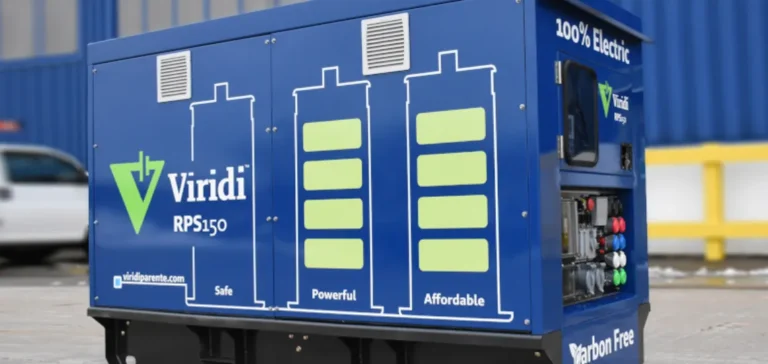Viridi has confirmed receipt of cETLus certification for its RPS150 energy-storage system, assessed against the UL 9540 safety standard. The listing applies to both United States and Canadian markets. The announcement comes less than a week after a public demonstration in which the device confined a thermal runaway to a single cell. The company says third-party recognition clears the way for new deployments in occupied environments.
Certification strengthens confidence
The evaluation was conducted by Intertek Testing Services, a nationally recognised testing laboratory. UL 9540 requires full-system electrical, mechanical and thermal checks. Engineers examined the RPS150’s ability to isolate failed cells and limit gas emissions. Viridi’s statement, carried by PR Newswire, notes that each rack supplies one hundred fifty kilowatt-hours and can be combined into multi-megawatt arrays.
During the “No Heat Zone” event, conventional lithium-ion batteries went into full meltdown while Viridi’s pack remained contained. Chief Executive Officer Jon M. Williams said the demonstration proved the design’s robustness “under real-world conditions”. Firefighters on site reported no flame spread beyond the initial cell. Williams added that logistics-centre operators now plan to install the technology in enclosed spaces.
Fire data drives the market
New York recorded 277 battery-related fires in 2024, up from 268 in 2023, according to municipal fire services. Phoenix logged 127 incidents between June 2023 and September 2024, doubling its annual average. Authorities attribute prolonged interventions to cell-to-cell propagation. Such statistics are prompting insurers and regulators to require certified equipment before issuing permits and cover.
Analysts forecast demand for compact energy-storage systems in occupied buildings to exceed three gigawatt-hours a year by 2027. Viridi assembles its modules at the former American Axle site in Buffalo and plans to double production capacity next year. The company is also pursuing equivalent approvals in Europe and Asia-Pacific. “Operators want solutions that are both high-performing and inherently safe,” Williams reminded stakeholders.






















